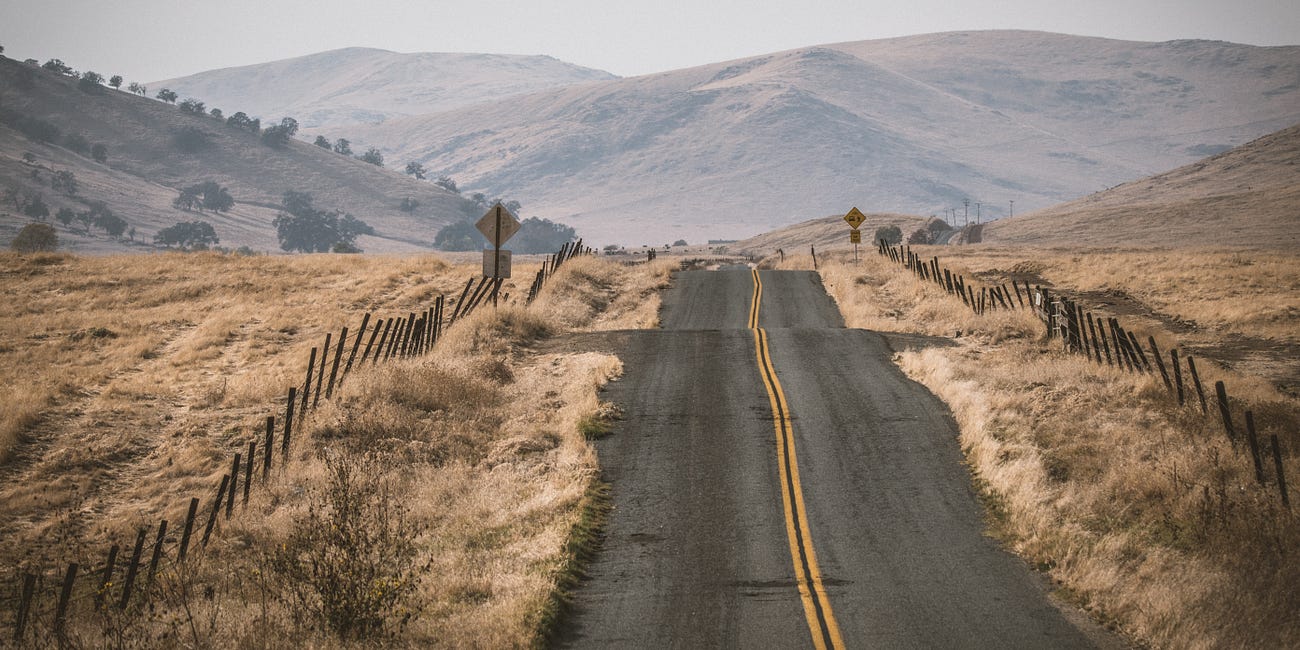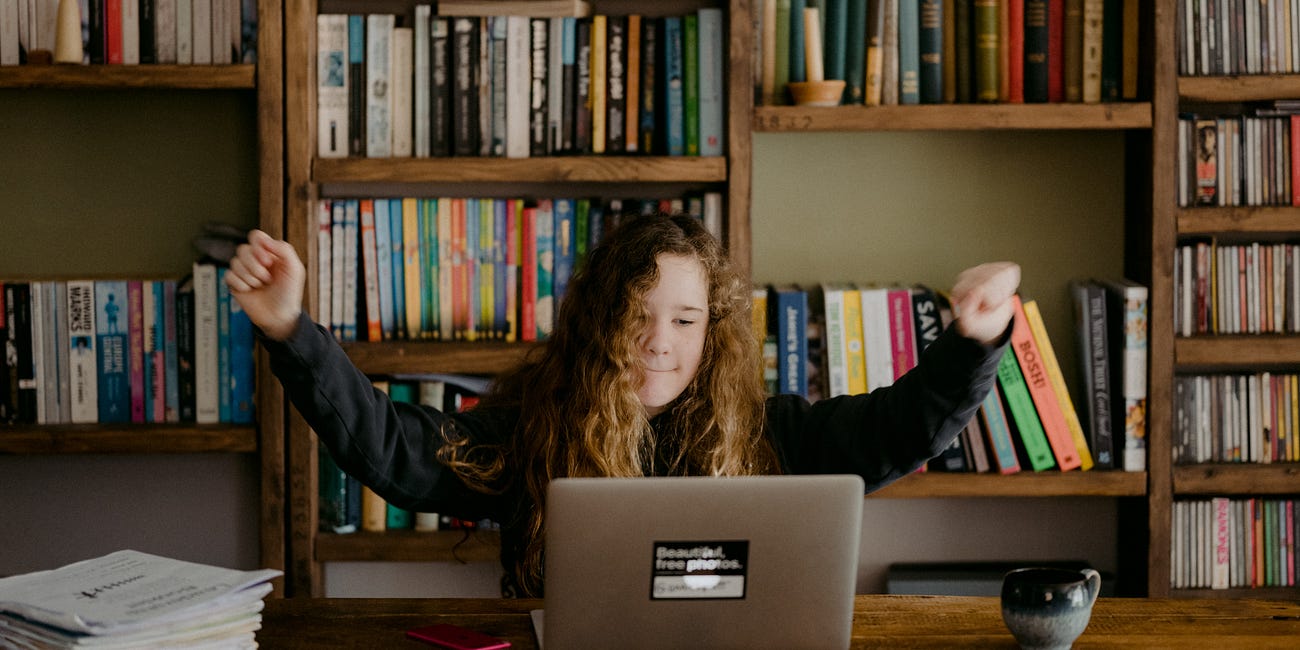I wrote a personal essay for a podcast and it taught me to be better at this
Working on this personal essay about my brother pushed me to see flaws in my writing, how to get more clear about the story, and to get more comfortable with the editing process.
This is my experience with submitting an essay to be read on Writing Class Radio’s podcast. It’s about what I learned with each edit and how the lengthy back-and-forth process pushed me to think a little differently, write more succinctly, and share more of my emotions.
I wish I had the podcast to share with you, but long story short, I was asked to work on a different story and told that one I submitted about my brother will eventually be read.
“Editing is love.”—Allison Langer
I joined Writing Class Radio’s First Draft Class, then Second Draft and it gave me the insight and courage to submit a personal essay for their podcast. I subscribed and binged the episodes, so I was already familiar with the format and types of essays they accepted.
Through the classes, I learned how to tell a clear, emotionally-driven story. I wrote about First Draft in a previous Substack, in case you’re interested.
My brother’s first letter to me from prison
The essay I submitted was about my brother Isaac and his first letter to me from prison. I was unable to open it. You’d think I would’ve ripped open the letter, eager to know how he was doing, but it was quite the opposite.
I could barely look at it, let alone open it for at least a month, or maybe longer. Those days were hazy and my heart was heavy. I felt as if I was waiting for something. Perhaps I wanted someone to tell me I was being pranked and just kidding, my brother wasn’t just sentenced to 19 years.
I remember that day his letter came. It was after a long day at work. I came home and checked the mail and saw his letter in my mailbox. The thin, white envelope was upright. It was the only piece of mail I got that day and looked just as lonely as I felt.
Before I grabbed it, I knew it was from him. I saw the stamp, plus, who else would be sending me snail mail?
I paused after opening the little metal box, my keys still dangling from the keyhole. I wondered what my mailman thought about me after delivering mail with Kern Valley State Prison stamped on it. I saw him frequently, carrying his huge bag of mail, and we often smiled and waved to each other.
Writing about being in a dark place
From the day Isaac was sentenced, I kept asking why and how. How did this happen and where did his life go so wrong? He came from a loving family with two parents who would’ve done anything for him. Then, I was angry. How could he do this to my parents when all they did was show him love and support?
I felt like it was all my fault. Maybe if I talked to him more when he was going down the wrong path, he wouldn’t be where he is today.
But mostly, I couldn’t shake the hopelessness about his new life in prison.
I didn’t tell any of my friends about what happened because I was ashamed but also, I wasn’t ready to talk about it. Months went by, and I fell into a depression, drowning in my dark thoughts.
Turning in the essay and my expectations
When I submitted the essay, I thought I had done a decent job of conveying my emotions without explicitly saying things like, “I was sad.”
I hope my writing is a cut above that level now, so I tried my best to explain and show, without telling. However, I still struggle. I know it’s a process and I’m still learning how to improve this part of my writing craft.
I focused on conveying how I felt in my body. Looking back on those early days when Isaac first went to prison, I felt as if I would stop breathing if I didn’t tell myself to. The anxiety would build until I couldn’t take it anymore.
Around this time, I started going to hot yoga, and that helped a lot. There’s nothing like being drenched in sweat and punishing your body to get into twisty balancing poses.
I became more aware of how I was breathing and took deep breaths to help with the feelings of suffocation. I wanted my lungs to keep expanding until they were as big as balloons. Then, I wanted to let go and feel the release.
What is this about?
When I got the first few drafts returned to me, let’s just say, their edits didn’t beat around the bush. 😆 It was a slash-fest. But I was pushed to think—what is this story about? If I read this to someone for the first time, what would this person tell me it was about?
Is it about me feeling guilty because of my role in my family? Or is it about wanting to tell myself a better story about my brother’s new reality? Or was it both?
Getting centered on the story was a huge big part of the editing process. It was like trying to snap a photo and fiddling around with the lens to get it in focus.
Once we figured this out, I was asked to go further into my emotions, with specific examples. What did I mean when I said “My anxiety worsened”? How? Why? What happened?
With each round, I began to better understand where the holes were and where the reader would want to know more.
Getting more comfortable with edit mode
This back-and-forth process taught me to appreciate the opportunities to expand as a writer. It took months to get the article finalized and with each round of edits, I saw the story coming into sharper focus. As the story unfolded, I noticed I felt more at ease with the edits, too.
My default mode is to blow through all of the edits in one shot.
But instead of trying to immediately address the comments, I read all of them at once and then gave myself room to think. Most of the time, I couldn’t immediately come up with examples or ways to better articulate how I felt anyway, so I used these moments to step away from my computer. I went for a walk to think.
Sometimes, good ideas came to me on these walks and sometimes they didn’t. But when I returned to my desk, I did the best I could to resolve the edits. I turned it in and I waited for another round.
I submitted my story in March, so with all the edits and revisions, it probably took a good three months to finalize. Just like writing my book, it’s all about enjoying the process. And I definitely did.
It’s funny the things you end up learning. Here I thought I was just submitting a personal essay for a podcast, but learned so much about myself…
When I feel frustrated and why
To be more patient with editing
And to allow myself to feel the joy of accomplishment when it was done
Stay tuned for when the podcast airs!
More stories…
My first visit to prison
The evening before my first visit to see my brother, I go to the prison’s website to read about what to wear and what you’re allowed to bring inside. I learn that visitors aren’t allowed to wear any clothing that is blue, nothing too revealing, no yoga pants, jeans, flip flops, caps, sunglasses, purses, wallets, cell phones, and the list goes on.
ReVISIONing the editing process
My approach to editing has always been very rule-based. In grade school, you learn that edits come after your draft. Editing is when you strive for precision, clarity, and perfection. For editing a book, I understood editing to embody two major layers:
The craft of a damn good story: 3 podcasts to listen to right now
I’ve been told on more than one occasion that I tend to give solid recommendations for the best podcasts. I’m a huge podcast person—I could’ve dedicated an entire Substack to it. Maybe I should… Podcast Junkie Wannabe Author? In listening and sifting through various podcasts about writing and authorship, I realized t…








Thanks for sharing this. I am a new writer (or shall I say an older writer, newly putting my writing out in the world), and the thought of getting feedback is thrilling and terrifying both. It calmed me to hear how you experienced feedback and could frame it, all within the context of the actual story you were trying to write about (and re-live, not easy). So, just want you to know it was really helpful for me. I too am looking forward to the podcast!
Emotional resonance is difficult for EVERY WRITER—I have editorial letters that say over and over, "Show me the emotion!" Can't wait to hear the podcast episode.